
Next 17th March 2018 in Doha (Qatar), the Research Center for Islamic Legislation and Ethics will hold its 6th Annual International Conference entitled: :
Religious discourse in the public sphere: principles and realities
We let you discover all the speakers (by chronological order of the Conference):
Opening Session
Dr Emad El-Din Shahin
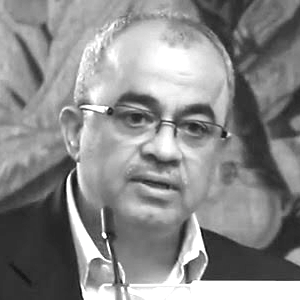
Dr Emad El-Din Shahin is the Dean of the College of Islamic Studies (CIS), Hamad bin Khalifa University, Qatar Foundation. Before joining CIS, he was the Hasib Sabbagh Distinguished Visiting Chair of Arabic and Islamic Studies and a visiting professor of Political Science at the School of Foreign Service at Georgetown University. Shahin holds a Ph.D. from the Johns Hopkins School of Advanced International Studies, M.A. and BA from the American University in Cairo. He has taught in leading universities including Harvard, Notre Dame, George Washington, and Boston University. Shahin was a Distinguished Visiting Scholar at Columbia University and public policy scholar at The Woodrow Wilson International Center for Scholars. He has authored, co-authored and co-edited six books and has more than 50 scholarly publications including journal articles, book chapters and encyclopedia entries. He is the editor-in-chief of The Oxford Encyclopedia of Islam and Politics and co-editor with John L. Esposito of The Oxford Handbook of Islam and Politics.
Dr Fethi Ahmed
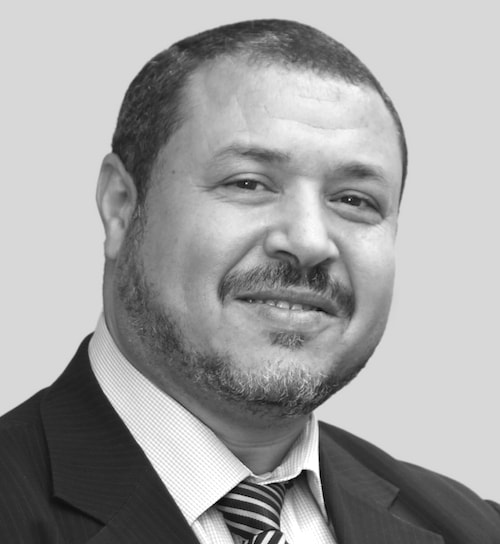
He is a New Zealander who grew up in Tunisia and completed his education in sociology and Islamic Studies overseas. He completed his BA in 1992 majoring in Applied Sociology and Statistics, his MA in 1997 majoring in Islamic Studies and his PhD in 2003 specializing in Political Sociology. He also holds certificates in Small Business Management, Treaty of Waitangi, and Malaysian Language and Studies. Dr Ahmed speaks Arabic, English, French and Malay. He worked as an Assistant Professor at the International Islamic University in Malaysia, and as an International Student Advisor, a Consultant and Casual Lecturer at the University of Auckland in New Zealand. He also worked as an Academic Director with the Saudi Arabian Cultural Mission in New Zealand. As a volunteer, he led Al-Manar Organization, the Center for Education and Development, and was the producer and presenter of Noor English/Arabic Radio program in New Zealand. Dr Ahmed has been engaged in public speaking in New Zealand, Australia, Malaysia, Tunisia and Qatar. He delivered many specialized lectures and seminars and participated in several international conferences and workshops. His main research interests include contemporary issues in Sociology and Muslim societies, Applied Ethics, and Islamic Thought and Civilization and he has a number of publications to his name. Dr Ahmed believes that knowledge is power and ethics is paramount.
Sh. Abdelfattah Mourou
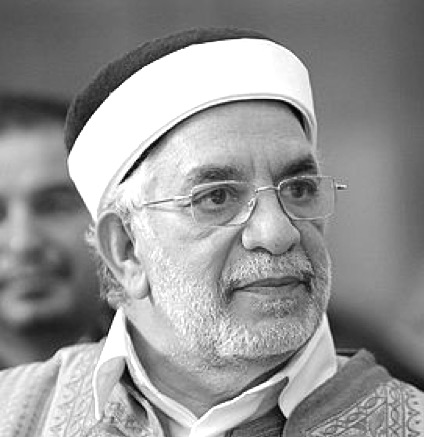
Sheikh Abdelfattah Mourou was born in Tunisia in 1948, and has four children. He has been the First Vice President of the Assembly of the Representatives of the People since 2014. Sheikh Mourou graduated from the University of Tunis in 1970 where he studied law. He served as a judge until 1977 then resigned to work as a lawyer thus far. Sheikh Mourou is one of the most prominent politicians and preachers in Tunisia and one of the founders of the Islamic Movement there. He was arrested in 1991 and spent two years in prison. After release, he retired from politics until the toppling of the regime of Zine El Abidine Ben Ali by a popular uprising in January 2011. After the revolution, Sheikh Mourou resumed his political activity and was appointed as the Vice President of the Ennahdha Party in Tunisia. He participated in the 2014 legislative elections in Tunisia and secured a seat in the Assembly of the Representatives of the People. Sheikh Abdelfattah Mourou speaks French, German as well as Arabic and is a talented debater. He is well cultured; known for his open mindedness towards other cultures. Sheikh Abdelfattah traveled to many countries in the world on official, preaching and intellectual missions and participated in many seminars and conferences. He also delivered a large number of lectures and preaches, and participated in many television and radio programs. According to Sheikh Abdelfattah Mourou, the Islamic movement in Tunisia- like other Islamic movements which were brought to power by voters in other countries- should focus on the two present propounded priorities of protecting the pluralistic democratic entity of the society, and confronting every dictatorial thought that might suppress diversity.
Plenary Session 1
Theorizing Religious Discourse and Public Sphere: Concepts, parameters and authorities
Dr Mohammed Ghaly
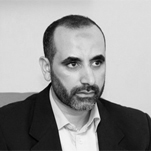
Mohammed Ghaly is currently professor of Islam and Biomedical Ethics, Center for Islamic Legislation & Ethics (CILE) at Hamad Bin Khalifa University, Qatar. In 1999, he did Islamic Studies in English at al-Azhar University in Cairo, Egypt and got his bachelor degree with Cum laude. In 2002, he got his M.A. degree in Islamic studies also with cum laude from Leiden University, the Netherlands and in 2008 he got his PhD degree from the same university. During the period 2008-2013, Ghaly was faculty member at Leiden University with main focus on Islamic Law and Ethics. Since 2011, Ghaly is faculty member of the Erasmus Mundus Program; the European Master of bioethics jointly organized by a number of European universities. In 2012, Ghaly was awarded the prestigious VENI grant (2012-2016) from the Netherlands Organisation for Scientific Research (NWO) to do research on “Islam and Biomedical Ethics”. During his academic career, Ghaly developed a wide range of research interests and academic publications within the field of Islamic studies including Islamic theology, Islamic law and (biomedical) ethics. Besides his book Islam and Disability: Perspectives in Theology and Jurisprudence (Routledge: 2010), Ghaly published in reputable journals in the fields of both Islamic studies and bioethics including Islamic Law and Society - Journal of Religion, Disability and Health - Zygon: Journal of Religion and Science and Bioethics. Ghaly is the guest-editor of the two thematic issues on “Islam and bioethics” published respectively by Zygon (September 2013) and Bioethics (February 2014). Watch Dr Ghaly's Podcast videos here.
Dr Bassem El Rai
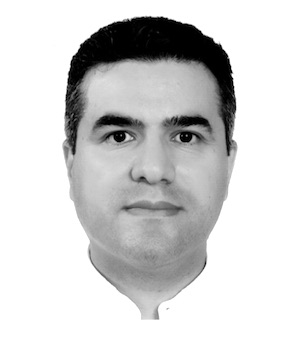
Dr Bassem El Rai has received his Ph.D. from The University of Münster, Germany. He is currently a lecturer at the Lebanese University, Saint Joseph University, and The Holy Spirit University of Kaslik. His research interests include political philosophy, the philosophy of religion, and hermeneutics. He has presented several papers at international conferences and seminars, particularly on the relation between religion and society. He has various academic publications including The 1943 Pact, The State Society in Contemporary Debate, and At the Frontiers of Knowledge: An Introduction to Philosophy (translated from German), among others. He is active in social debates concerning civil society and peaceful coexistence in diverse societies.
Dr Sohaira Siddiqui
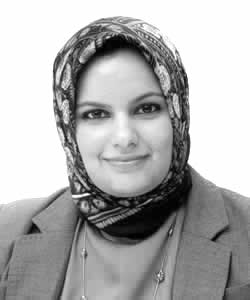
Dr Sohaira Siddiqui is an Assistant Professor of Theology at Georgetown University's School of Foreign Service in Qatar. In 2014 she received her doctorate in Religious Studies from the University of California Santa Barbara. Her first monograph, Knowledge, Law and Politics: An Intellectual Portrait of al-Juwayni, analyzes the thought of the 11th century jurist and theologian Abu Ma'ali al-Juwayni through a close reading of his legal, political and theological treatises. She has published a series of shorter articles on comparative Islamic political thought in the 11th century, scholarly connections and mechanisms of critique in the medieval period, and modern arguments for legal reform. She is also the editor of a forthcoming volume entitled Locating the Shari'a: Legal Fluidity in Theory, History and Practice. She currently has two research projects. The first is a translation and commentary of al-Juwayni's treatise entitled, Kitab al-Ijtihad, one of the earliest extant treatises discussing the juristic debate regarding the ontological multiplicity of truth. The second project focuses on the juridical thought of some of the first Muslim judges to serve on the High Courts in British India during the 17th and 18th centuries. This project aims to analyze the contestations to Anglo-Muhammadan law once Muslim jurists were afforded the opportunity to contribute to its adjudication. Her research interests include classical Islamic legal theory, classical Islamic political thought, the development and intersection of legal thought and political thought from the 9th to 11th centuries, Islamic Law under colonialism, and secularism and modernity in relation to Islamic law and Muslims in the West. She has previously taught courses in Religion, Islamic Law and Islamic History at the University of Saskatchewan and has held fellowships at Cambridge University and Harvard Law School.
Sheikh Farouq Fareez
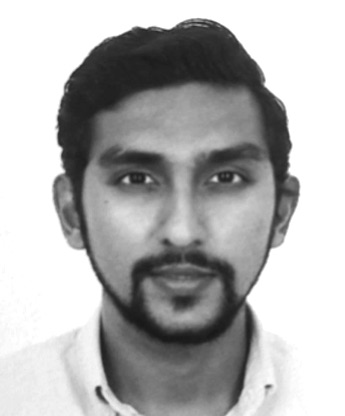
Sheikh Farouq Fareez is currently a graduate student pursuing his master’s degree in Islamic Thought and Applied Ethics at Hamad Bin Khalifa University, Doha, Qatar. He has received a B.A Honors in Comparative Religion and Usuluddin from the International Islamic University of Malaysia. Farouq is also actively involved in community engagement programs in Singapore through his stints at the Singapore Islamic Scholars and Religious Teachers Association (Pergas) and the Religious Rehabilitation Group (RRG) as a Community Development Executive. He is currently a member of the CILE Alumni Network (CAN), a global platform for members to address contemporary ethical challenges by reflection, research and dialogue. His area of interest involves issues concerning Islam, Human Rights and Ethics.
Dr Mu'taz A. Al Khatib
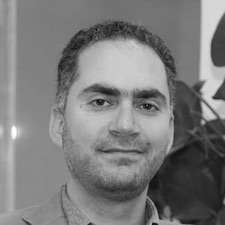
Mu’taz Al Khatib is Assistant Professor of Methodology and Ethics at CILE. He holds a BA in Islamic Studies, from Damascus (1997) and a BA in Arabic literature from Al-Azhar University, Cairo (1998). He received his MA in 2002 and PhD in 2009 on "The Textual Critical Approach of Hadith: A Study into the Methods of Traditionalists (Muhaddithun) & Legal Theorists (Usuliyun)", published in Beirut, 2011. Mu'taz is a founding member of al-Multaqah al-Fikri li al-Ibdaa' (Intellectual Forum for Innovation, 1999), and was the anchor of Alsharia and Life program, on Al Jazeera channel (2004-2013). He served as Editor-in-Chief of "Islam and Contemporary Affairs" at IslamOnline.net (2003-2008). He was a visiting fellow at ZMO, Berlin (2006), and visiting scholar at the Forum Transregionale Studien, Berlin (2012-2013). Mu'taz has also been a visiting lecturer at the Islamic University of Beirut and Qatar University. He has presented invited lectures at various academic institutions including Berkeley School of Law (Boalt Hall) at the University of California; Institute for Transregional Study of the Contemporary Middle East, North Africa, and Central Asia at Princeton University; Institute for the Near and Middle East at the University of Ludwig-Maximilians, Munich; and the University of Osnabrück, Germany. He is reviewer for a number of journals including Islamization of Knowledge from the International Institute of Islamic Thought; Journal of al-Tajdīd from the International Islamic University, Malaysia; and the Arab Center for Research & Policy Studies, Qatar. Mu'taz is also author and editor of several books and over twenty academic articles on Hadith criticism, Islamic interpretation methods, Islamic intellectual history, and Islamic Law. He has written numerous journal articles for Arabic language newspapers and magazines, including Al-Hayat, Weghat Nazar, and al-Manār al-Jadīd. To see his podcast videos (only in Arabic), click here.
Plenary Session 2
Religious Discourse and the Public Sphere: Dynamics and Influences
Dr Rajai Ray Jureidini

Dr Ray Jureidini is a recent appointment as Professor of Migration, Human Rights and Ethics at CILE. He grew up in Australia, completing his studies in industrial and economic sociology at the Flinders University of South Australia. He completed his BA in 1977, majoring in sociology and psychology; first class Honours in sociology with a thesis on producer cooperatives in 1979; PhD thesis on Moral Values in Economic Life: a case study of life insurance and superannuation (1987). His research interests include migration, human and labour rights, human trafficking, gender discrimination, racism and xenophobia. In the 1990s, he was a co-founder and vice-chairman of the Australian Arabic Council, established to counter anti-Arab racism in Australia, as well as founder and editor of the Journal of Arabic, Islamic and Middle East Studies. After teaching Sociology in five universities in Australia, he spent 6 years at the American University of Beirut from 1999 where he began researching and publishing on human rights abuses of migrant domestic workers in Lebanon. At the American University in Cairo from 2005, he became director of the Center for Migration and Refugee Studies in 2008 and conducted a number of research projects on migrant and refugee issues. In 2011-14, he returned to Lebanon at the Institute for Migration Studies at the Lebanese American University. In 2012-13 he served one year as consultant to the Migrant Worker Welfare Initiative at the Qatar Foundation in Doha, contributing to the QF Standards for Migrant Worker Welfare for contractors and sub-contractors and completing a report on labor recruitment to Qatar. To see his podcast videos, click here.
Dr Dale Eickelman
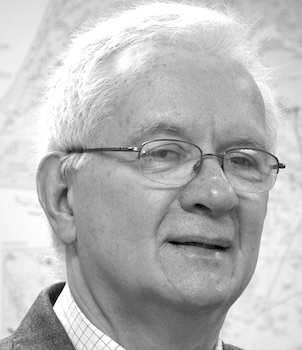
Dale F. Eickelman is Ralph and Richard Lazarus Professor of Anthropology and Human Relations Emeritus at Dartmouth College, USA. His publications include Moroccan Islam: Tradition and Society in a Pilgrimage Center (1976; Arabic, 1989), Muslim Travelers: Pilgrimage, Migration, and the Religious Imagination (co-edited with James Piscatori, 1990), Public Islam and the Common Good (co-edited with Armando Salvatore, 2002), Muslim Politics (co-authored with James Piscatori, new ed., 2003), The Middle East and Central Asia: An Anthropological Approach, 4th ed. (2002), New Media in the Muslim World: The Emerging Public Sphere (co-edited with Jon Anderson, 2nd ed., 2003), Knowledge and Power in Morocco (1985, Arabic 2009), and Higher Education Investment in the Arab States of the Gulf: Strategies for Excellence and Diversity (co-edited with Rogaia Mustafa Abusharaf (2017), and 120 articles and book chapters. A former President of the Middle East Studies Association of North America, Fellow of the Institute for Advanced Study (Princeton), and of the Wissenschaftskolleg zu Berlin, Professor Eickelman currently serves as senior advisor to Kuwait’s first private liberal arts university, the American University of Kuwait. In 2009, he was named a Carnegie Scholar for a two-year period, and in 2011 he received the Distinguished Scholar Award from the Middle East Section of the American Anthropological Association.
H.E. Lolwah Alkhater
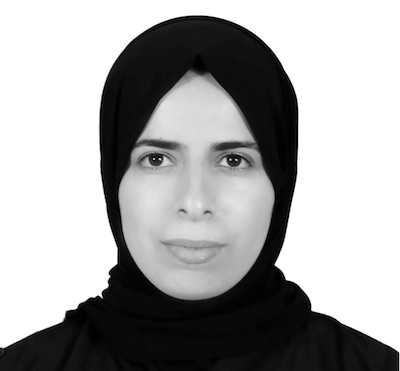
Lolwah R M Alkhater is the Spokesperson of the Ministry of Foreign Affairs in the State of Qatar. Before her appointment as the Spokesperson, Lolwah joined the Ministry of Foreign Affairs as Minister Plenipotentiary. Lolwah also served as the Director of Planning and Quality at Qatar Tourism Authority and as a Research Project Manager at Qatar Foundation. Besides the official capacity, Ms. Alkhater has been working as an independent policy analyst participating in conferences and multiple publications and she is the co-editor of “Policy-making in a Transformative State: the case of Qatar”, a book published by Palgrave Macmillan. Moreover, Lolwah worked as a part-time lecturer at Doha Institute for Graduate Studies and she is a Research Associate at The Oxford Gulf and Arabian Peninsula Forum at St. Antony’s College at the University of Oxford. Ms. Alkhater is also a board member at The Institute for Palestine Studies. Lolwah holds a Master’s of Science in Computing and a Master’s of Arts in Public Policy and she is a DPhil Candidate at the University of Oxford in the area of Oriental Studies looking at the question of Islam and Modernity in the context of the Arab Nahda (arab awakening).
Youssof Salhen
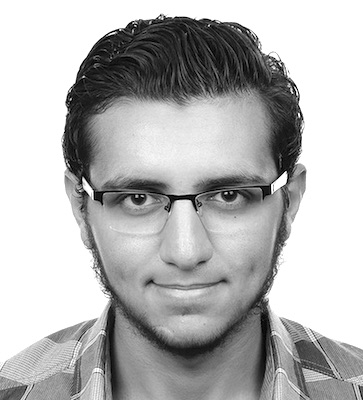
Youssof Salhen is writing his MA thesis on “online fatwa” at the College of Islamic Studies, Hamad Bin Khalifa University. He graduated from al-Azhar University (2015) majoring in Islamic Studies in English. He studied translation at the American University in Cairo (2013-2014) and was granted a mini-scholarship to study religious pluralism at Temple University (2014), USA. Youssof’s current research interest is Islam in the digital age. In the same academic area, Youssof works as a research assistant for the program of Islamic Civilization and Muslim Societies in the College of Islamic Studies at Hamad Bin Khalifa University.
Dr Ibrahim Mohamed Zein
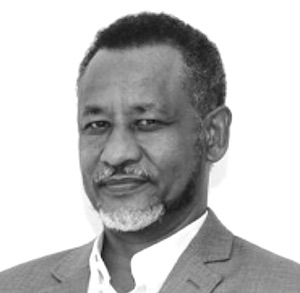
Ibrahim Mohamed Zein is currently a Professor of Islamic Studies and Comparative Religion, College of Islamic Studies at Hamad Bin Khalifa University in Qatar. He was the former dean of the Faculty of Islamic Revealed Knowledge and Human Sciences and the International Institute of Islamic Thought and Civilization at the International Islamic University Malaysia (IIUM), Kuala Lumpur. He obtained a B.A. (Hons) in Philosophy from the University of Khartoum in 1980, Master of Arts in Philosophy from the University of Khartoum in 1984, Master of Arts in Religion from Temple University in 1986 and a Doctorate of Philosophy in Religion from Temple University in 1989. He wrote numerous articles and book reviews. Through his academic administration of Islamic Studies programs, supervision of postgraduate research and teaching he has made a definite impact on the field. His first book was published in 1983 entitled “ Al- Sultah fi Fikr Al-Muslimin”.
Sh. Chauki Lazhar
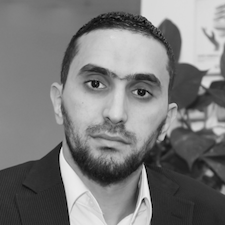
Chauki Lazhar, originally from Belgium, is Deputy Director of CILE. He is a member of the International Union of Muslim Scholars (IUMS) and Lecturer in Applied Islamic Sciences at CIET Institute in Gent, Belgium. He read Islamic Studies at the European Institute of Human Science in Chateau Chinon and Paris, France (2003-2010) where he also memorized the entire Qur’an. He holds a BA cum laude (with honours) in Sharia and Theology and a MA summa cum laude (with highest honours) in Fiqh and Usul al-Fiqh, and is currently a doctoral researcher in Islamic Law at the University of Aberdeen, United Kingdom. Chauki has presented lectures at several institutes in Belgium and France since 2007. In 2012 he was Lecturer in Islamic Sciences at Group T, international University College Leuven, Belgium. Chauki has taught a wide range of courses including Islamic Law, Theology, Quranic Exegeses (Tafsir), Principles of Islamic Law and Jurisprudence (Usul al-Fiqh), Maqasid al Sharia, Quran and Hadith studies. His research interests in the field of Islamic Studies include Islamic Theology, Spirituality, Law and Thought. Latest publications: “The need for reform of Usûl al Fiqh in Modern Times” Arab Network for Research and Publishing (2016); “Gender Differentiation in Islamic Rulings, A Thorough Review of the Concept of Femininity in Islam”, co-authored, al Mudawwanah, Issue 15 (2018); “Women’s Prayer in the Mosque, the Specificities of Femininity that Prevent from the Benefit of Praying in the Mosque, Between Truth and Illusion”, Journal of Islamic Studies and Thought for Specialized Researches, Volume 4, (2018); “The Development of Contemporary Theorizations of Sharia Objectives”, Journal of Islamization of Knowledge, Issue 90 (2018).
Posted by CILE : Research Center for Islamic Legislation & Ethics on Tuesday, March 13, 2018



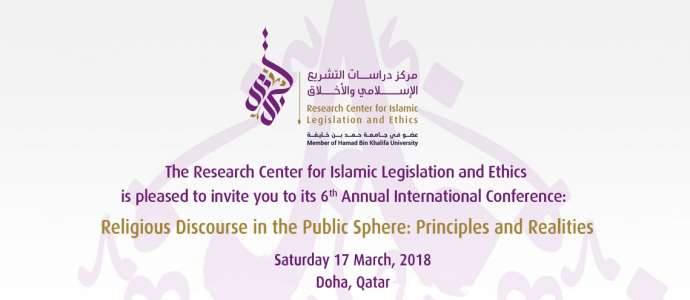

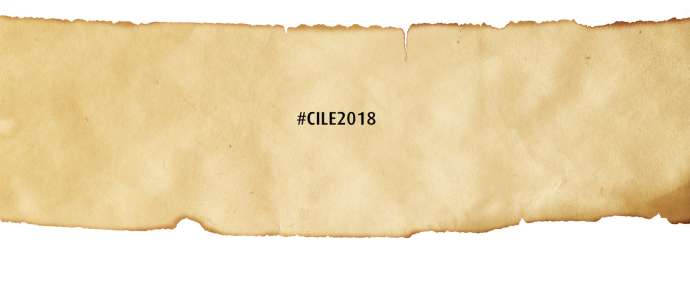
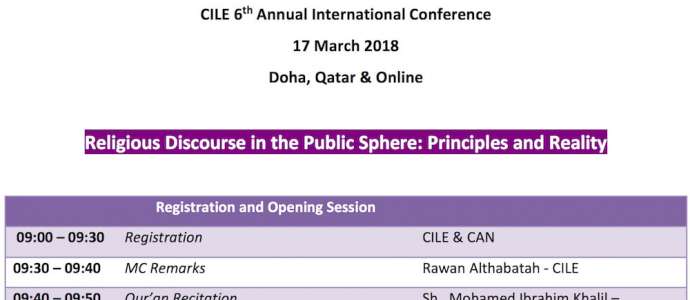


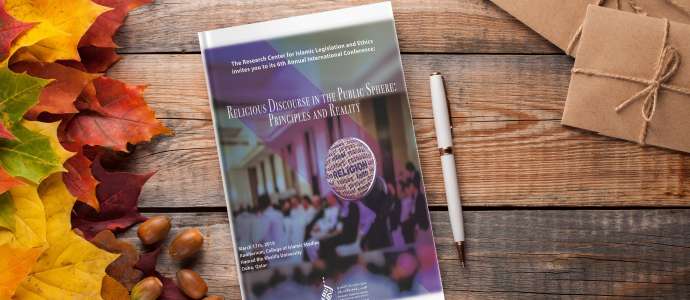

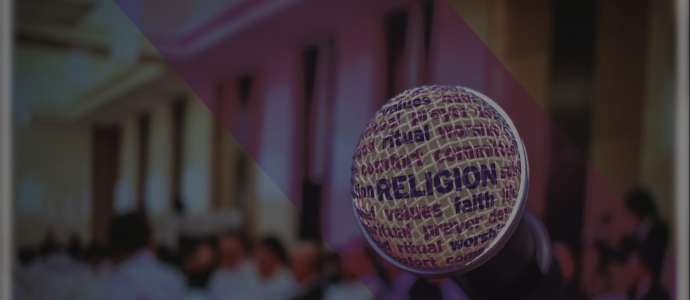












Add new comment